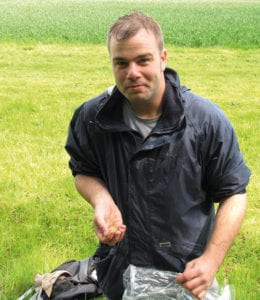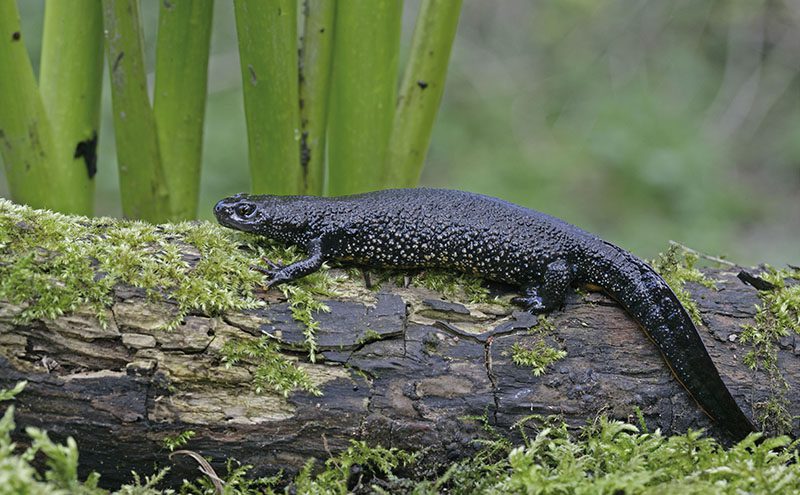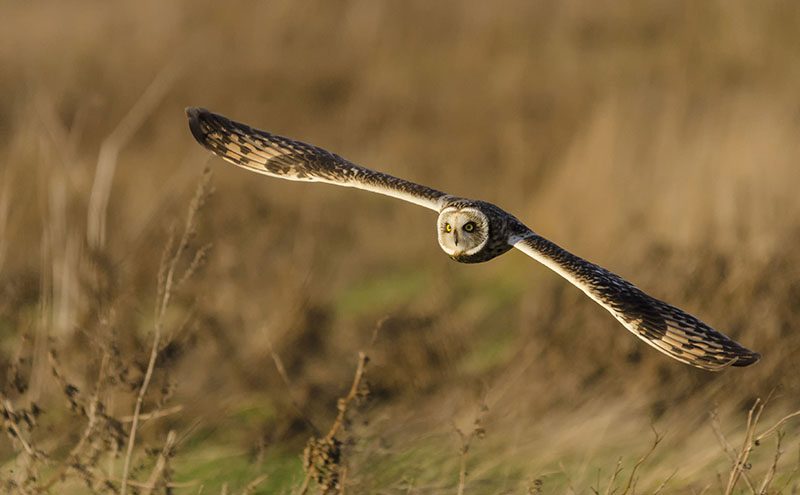 Envirotec addresses a few questions to EPR’s new managing director Ben Kite. He talks about ecological consultancy, training, Brexit, and the environmental measures he believes could make the most impact.
Envirotec addresses a few questions to EPR’s new managing director Ben Kite. He talks about ecological consultancy, training, Brexit, and the environmental measures he believes could make the most impact.
• How did you come to be managing director of EPR?
I began as a junior ecologist and worked my way up. EPR is one of the longest-established and most experienced ecological consultancies in the UK, having been founded in 1989, and the board wanted to make sure that such a fantastic company endured into the future and continued to positively influence practice.
Eventually, in 2013, I was offered the opportunity to become a partner in the business as part of the succession planning that had been taking place. After serving 3 years on the board and mixing technical project work with my new business management responsibilities as a director, the board of EPR decided that I should step up to become the next MD.
• What’s a typical day like?
There’s no such thing for an ecological consultant! That is, however, the real beauty of the profession – there is no excuse for being bored. One day I might be giving strategic advice to the developer of a major project, the next I could be training staff, overseeing site work, going through company accounts or even up to my knees in a pond somewhere looking for amphibians or surveying snakes on a heathland (I make sure to stay involved in at least some fieldwork!).
• Where do you see the most significant areas of growth in the field of ecological consultancy in the immediate future?
There seems to me to be a trend in general practice that has been taking place gradually for some time, taking us away from a regime of small-scale, species-focused, project-level interventions, and towards landscape-scale strategy, planning and policy for the natural environment.
Attempts to introduce ‘Biodiversity Offsetting’ metrics have been a step in this direction, as have Natural England’s pilot studies into the replacement of project-specific European Protected Species Licences for Great Crested Newts, with a District-wide strategy for the species covered by an umbrella ‘organisational’ licence.
This shift in emphasis brings both opportunities and some potentially concerning pitfalls, but it is up to us as a profession to make sure it works and delivers better outcomes for both development and the natural environment.

• What type of skills do you think are most important to succeed in ecological consultancy?
Everyone working in the profession needs a strong academic grounding in the science and practice of ecology itself. All EPR ecologists are qualified to degree level as a minimum in ecology or a related subject, and undergo a mandatory internal training programme before starting work, but the so-called ‘soft’ skills are also very important in the application of that knowledge.
The ability to be communicate articulately and be persuasive is particularly important – as a consultant, it does no good at all to be very knowledgeable about a particular species, if you cannot then translate that knowledge into meaningful land-use planning advice, and explain to someone why that advice should be followed.
• Do you feel the role of an ecological consultancy is well understood by the public or potential clients?
I think that there is much work to be done to improve the public understanding of our role and function. Many members of the public I speak with are surprised to learn that ecologists are involved at all in development projects, and misconceptions about our role range from believing on the one hand that we’re some kind of ‘wildlife police’, to the other end of the spectrum – that we’re only here to ‘greenwash’ development.
The truth is much more nuanced and hopefully much more positive than either of these stereotypes. Our job is to build bridges between the natural and built environments, and to find ways to benefit both by using development to deliver positive changes such as new habitat creation or the funding of better management of important wildlife habitats. Clients are generally much better informed, and if they’ve worked with good ecologists before, they understand how our work can bring value to their projects through swifter consents, and a healthier and nicer environment for the end users of their developments.
• What are the most challenging types of development or project calling upon your skills as an ecological consultancy?
My answer to this question probably changes regularly as practice advances and new issues come to the fore. At the moment, one of the key ‘’issues of the day’’ is how to go about assessing and addressing the potential negative effects of air pollution on sensitive habitats and designated sites (e.g. from traffic or from energy generation).
Doing this well requires a broad skillset – from interpreting the results of air quality modelling data, to mapping predicted pollution concentrations, and then finally bringing in botanical and ecological expertise to assess the implications of this for sensitive species and habitats that might occur within the affected area, and decide how best to mitigate negative impacts. All this needs to be done against a backdrop of a continuously advancing research and evidence.
To tackle this relatively new area of practice, EPR has set up a specialist internal team dedicated to this work, comprised of experts in all of the relevant fields. The decision has been invaluable, as our ecological project managers now have an expert in-house resource to call on, rather than having to grapple with the issue alone, and we’ve already seen some high profile successes for major projects as a result of innovative approaches.

• How do you feel Brexit will reshape the world of ecological consultancy, and what are your feelings about it in relation to the environment?
The result of the EU referendum has thrown into question much of what the profession hitherto treated as being set in stone. The legislation governing the treatment of European protected species and protected areas
for example has been a predictable constant in our field for years, but these rules are no longer guaranteed to be immutable. There is a potential opportunity here to improve the rules to make them work better, but,
as a profession, we need to work hard to make sure that our politicians avoid presenting society with the choice between the economy or the environment – this is a false dichotomy. We can (and must!) have both, so that the system works both for the environment and the people who live in it.
• What single measure or policy would you recommend as likely to have the biggest impact on the environment?
Implementing a more generous and more ambitious system of environmental stewardship grants for farmers. The effects of agricultural practice across the UK on the natural environment are so extensive than even small changes to practice can have very large effects when multiplied up across the country.
The common practice of annual flailing of hedgerows, for example, strips young growth and suppresses both the amount of flowering and the subsequent abundance of hard and soft mast fruit that feeds birds, invertebrates, small mammals and even rarer species like the Hazel Dormouse.
Farmers are business owners and need to run productive and profitable farms, so if we as a society want them to forego some of that productivity and act as stewards for our collective natural heritage, we should be prepared to help them. An innovative re-think of environmental stewardship grants could even have room for supporting groups of willing farmers to engage in “re-wilding’’, or to provide other essential ‘ecosystem goods and services’ such as slowing down and storing floodwater with natural solutions – something that is likely to be increasingly important as climate change sets in.







